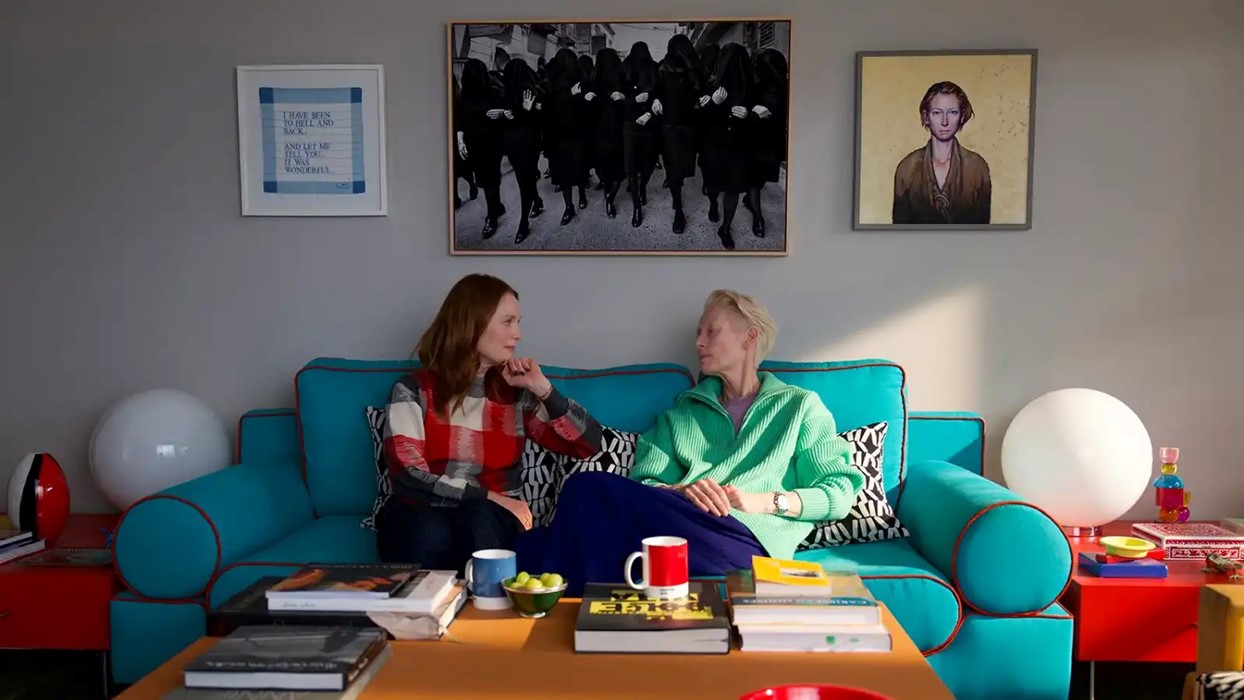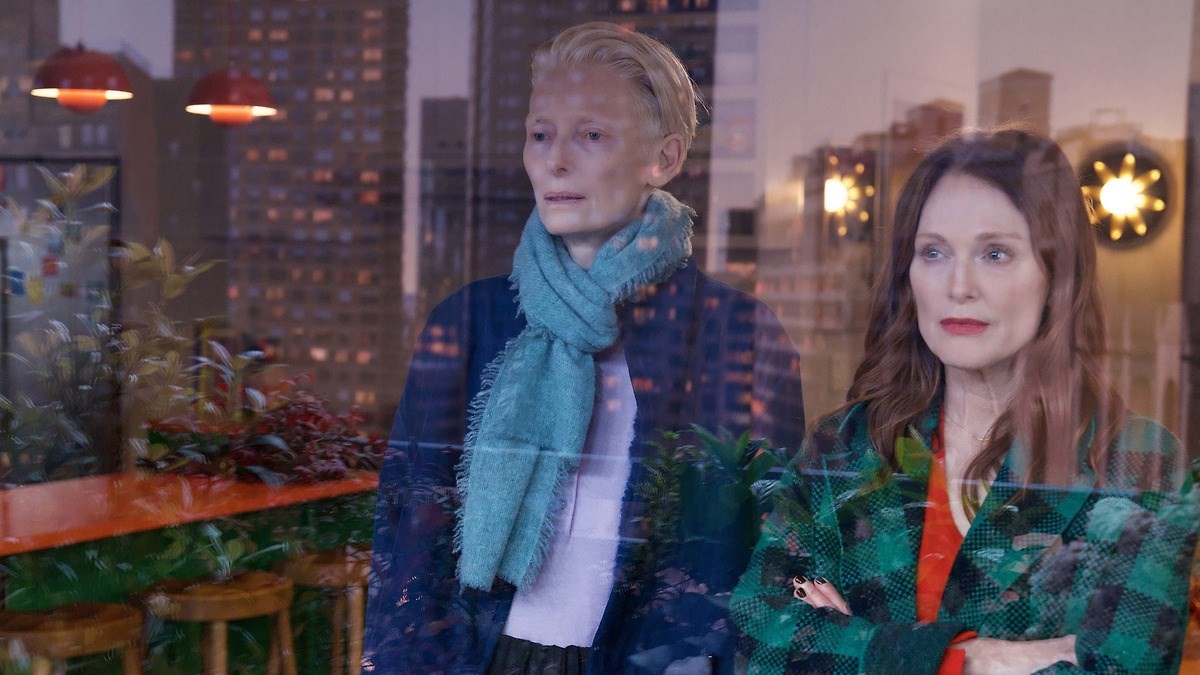Premiered at the Venice Film Festival 2024, Almodóvar’s long-awaited English-language feature debut stars Julianne Moore and Tilda Swinton in a blackly comic end-of-life drama
In his underrated last film, Parallel Mothers, Pedro Almodóvar spun a farcical baby-swap drama into an unexpectedly moving elegy for Spain’s civil-war dead. But it’s the spectre of his own mortality that haunts The Room Next Door, an end-of-life drama that brings the 73-year-old director to this year’s Venice film festival with his long-awaited English-language feature debut.
The film stars Julianne Moore as New York City-based author Martha, distraught to discover that her friend of many years, war reporter Ingrid (Tilda Swinton), has terminal cancer and is currently in hospital. After going to see her, she learns more about Ingrid’s semi-estranged relationship with her daughter, who was conceived when Ingrid was a teen with a partner who’d come back traumatised from the Vietnam War.

All of this is told in a rush of soapy exposition and flashback scenes that land on just the wrong side of campy – a line Almodóvar normally walks so skilfully, so we’re apt to wonder if the language barrier has somehow interfered with the magic here. But the film soon settles into a blackly comic groove when Ingrid makes an unexpected request: she has just bought a place in the country where she plans to take her own life, and would like her friend to accompany her there.
Initially, Martha is reluctant due to her deep-seated fear of death. But she finally agrees to go – “think of it as a vacation!” Ingrid advises – and the two take off upstate to the lavishly appointed house (a cubist-modernist dream, very Almodóvar). Here they embark on a strange routine that begins every morning with Martha creeping up the stairs to see if Ingrid’s bedroom door is closed – if it is, says Ingrid, that means she’ll be dead.
What follows is relatively light on plot by the author’s standards, moving fairly seamlessly between moments of comedy, pathos and drama. Swinton gets some good, plaintive lines about the harmful rhetoric surrounding terminal illness (this is a film that could and should reignite debate around euthanasia), but it’s shot through with moments of warmth and good humour, the maestro’s signature horniness resurfacing in a great scene with a hunky gym instructor, his religious irreverence on show in a brief aside about a male colleague of Ingrid’s affair with a Carmelite monk(!). But for the most part it’s as if the melodrama has all been stripped back, leaving Ingrid and author alike to ponder a world where the future’s now mostly in the past.

Ingrid’s character is lovingly drawn, an archetypcal ‘difficult mother’ in the Almodóvar mould gracefully portrayed by Swinton, pale skin drawn tight over that otherworldly bone structure. Martha is more of a question mark by comparison, but with her it’s more about the journey: pushing through her fear of death in her stay with Ingrid, she has a great line that hits home much more than the ending, which felt a bit too pat to properly land. On a coffee date with her ex (John Turturro), an academic taking his bad-news gospel about our impending climate doom on the road for a lecture tour, she’s dismayed to hear of his increasingly embittered outlook on the world. “You can’t go around telling people there’s no hope,” she tells him. “There are lots of ways to live inside a tragedy.” This, right here, is the stuff we go to Almodóvar for.
